Table of Contents
ToggleIn today’s fast-paced business world, staying ahead of the tech curve isn’t just a luxury—it’s a necessity. Companies that harness the power of innovative technologies not only streamline their operations but also gain a competitive edge. But let’s face it: navigating the ever-evolving landscape of business tech can feel like trying to find a Wi-Fi signal in a remote jungle.
Overview of Biz Tech Insights
Biz tech insights focus on the integration of technology into business strategies. Companies benefit from understanding how emerging tools like artificial intelligence and cloud computing reshape operations. By gaining insights, organizations can improve efficiency and drive innovation.
Understanding data analytics allows companies to make informed decisions. Analytics tools reveal patterns that enhance customer experiences. Additionally, utilizing customer relationship management software helps organizations personalize marketing efforts.
Investing in cybersecurity measures is critical. Data breaches cost businesses millions in damages every year. Risk mitigation strategies ensure sensitive information remains secure.
Staying informed about industry trends provides a competitive edge. Leaders in various sectors recognize the value of adopting new technologies. Those who follow tech news and reports keep their businesses relevant.
Professional development through training is essential. Workshops on digital skills equip employees with necessary tools for the modern workplace. Upskilling not only enhances productivity but also boosts employee morale.
Collaboration tools foster teamwork, regardless of geographical locations. Remote work has increased the importance of effective communication platforms. Team members can share information effortlessly, improving project outcomes.
Adopting a proactive approach to technology adoption shapes future success. Companies that embrace change often see higher growth rates. Adaptability remains a key factor in sustaining a competitive advantage in the ever-evolving tech landscape.
Current Trends in Biz Tech
Understanding current trends in business technology helps organizations stay competitive. Observing the rapidly changing landscape reveals critical areas of focus that companies should prioritize.
Rising Technologies
Artificial intelligence, blockchain, and edge computing lead in rising technologies. Companies increasingly adopt AI to streamline operations and enhance customer engagement. Blockchain technology offers improved security and transparency, greatly benefiting supply chain management. Edge computing processes data closer to the source, reducing latency and increasing efficiency. Smart devices, powered by the Internet of Things, collect valuable data for informed decision-making. Businesses will effectively leverage these innovations to drive growth and product development.
Impact of AI on Business
AI significantly transforms how companies operate. Enhanced data analytics capabilities enable businesses to gain insights into customer behavior and preferences. Organizations can automate repetitive tasks, freeing up resources for higher-value activities. Personalization becomes more achievable, improving customer satisfaction and loyalty. AI chatbots provide immediate responses, enhancing user experience while reducing operational costs. Companies embracing AI technologies position themselves advantageously in the market, leading to improved operational efficiency and sustained growth.
Key Players in the Biz Tech Space
Key players in the business technology sector include emerging startups and established corporations driving innovation and shaping the industry. Staying informed about these entities allows businesses to leverage new opportunities and enhance competitiveness.
Startups to Watch
Innovative startups are making significant impacts in the biz tech arena. Companies like Asana and Airtable streamline project management and collaboration. They facilitate effective teamwork in various workplace settings. Another notable startup, UiPath, focuses on robotic process automation, increasing efficiency and reducing errors. Emerging names in cybersecurity, such as CrowdStrike and SentinelOne, are crucial for protecting against data breaches. These startups demonstrate agility and creativity, making them essential for businesses looking to adopt the latest technologies.
Established Corporations
Established corporations play a major role in the business technology landscape. Microsoft leads with its suite of productivity tools and cloud services that enhance collaboration for businesses of all sizes. IBM specializes in artificial intelligence and blockchain, offering innovative solutions for data management and security. Google, with its advancements in data analytics and machine learning, empowers businesses to make informed decisions. Salesforce excels in customer relationship management, providing tools that personalize marketing efforts. These corporations set industry standards and provide reliable technology that companies can trust for ongoing development and operational success.
Challenges Facing Biz Tech
Tech advancements come with distinct challenges that businesses must navigate effectively. Two significant areas of concern include cybersecurity and the integration of new technologies.
Cybersecurity Concerns
Cybersecurity threats continue to escalate, posing risks to business operations and customer data. Companies face increasing incidents of data breaches, with a reported average cost of $4.35 million per breach in 2022. It’s critical for organizations to implement robust security measures, such as encryption and employee training, to mitigate these risks. Investing in security solutions and using multi-factor authentication can provide layers of protection. Moreover, regulatory compliance with data protection laws like GDPR enhances a company’s reputation while safeguarding sensitive information. Organizations that prioritize cybersecurity reinforce their credibility and can maintain customer trust amidst growing threats.
Integration of New Technologies
Integrating new technologies often presents complexities that can challenge business operations. The implementation of tools like AI and cloud services requires strategic planning and resource allocation. Organizations encounter challenges related to employee training and the adaptation of existing systems, which can slow down the adoption process. According to a survey, 56% of companies struggle with change management when adopting new technologies. Success hinges on creating a clear strategy that outlines goals and timelines for integration. Fostering a culture open to innovation can facilitate easier transitions, encouraging staff to embrace new solutions. Ultimately, businesses that effectively navigate these integration challenges can leverage technology to drive operational efficiencies and improve service delivery.
Future Predictions for Biz Tech
Businesses are set to see increased reliance on artificial intelligence in the coming years. Enhanced algorithms will improve customer targeting, enabling more personalized experiences that drive loyalty. Predictions suggest that by 2025, AI will contribute $15.7 trillion to the global economy.
Blockchain technology will gain even more traction across various industries. Transparent transactions will ensure security in sectors like finance and supply chain management. In fact, studies estimate that the blockchain market could surpass $69 billion by 2027.
Edge computing will play a crucial role in processing data closer to its source. Faster data retrieval will support real-time decision-making, especially for Internet of Things devices. Analysts project that investments in edge solutions will reach $20 billion by 2024.
Cybersecurity advancements will become even more critical. With costs of data breaches remaining high, robust security measures will mitigate risks. Companies are expected to increase their cybersecurity budgets by 30% to combat evolving threats.
Remote work technologies will continue to evolve, creating more seamless collaboration tools. Enhanced virtual meeting experiences and project management platforms will facilitate teamwork across geographic boundaries. The shift toward hybrid work environments will reinforce the demand for these solutions.
Data analytics will remain a priority for companies striving for informed decisions. Businesses are expected to invest significantly in enhancing their data capabilities over the next few years. Proficient data analysis will lead to improved operational efficiencies and better customer insights.
Investments in professional development will become a cornerstone of tech integration strategies. Firms that prioritize digital skills training for employees will foster innovation in their workforces. Enhanced training programs could lead to productivity boosts and increased employee satisfaction.
Staying ahead in the business technology landscape demands a proactive mindset. Companies must embrace emerging technologies and invest in robust cybersecurity measures to safeguard their operations. The integration of tools like AI and blockchain will not only enhance efficiency but also drive innovation.
As businesses navigate these changes, fostering a culture of continuous learning and adaptation is essential. By prioritizing professional development and leveraging data analytics, organizations can make informed decisions that elevate customer experiences.
Embracing collaboration tools will further support teamwork in an increasingly remote work environment. Ultimately, those who adapt quickly to technological advancements will position themselves for sustained growth and success in the future.







